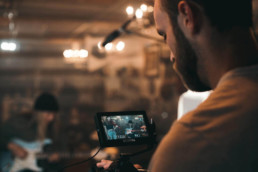Will the Implementation of the EU Copyright Directive Be Delayed?
We live in unprecedented times. The COVID-19 pandemic has affected governments worldwide, including the member states of the European Union, as they shift their focus from day-to-day legislation to battling the outbreak. According to several news sources, including a recent Politico article, transpositions of the new EU Copyright Directive of which Article 17 is a part will be slowed. For example, France has partially adopted the new Directive but the implementation of Article 17 will now not happen in France until the third or fourth quarter of 2020.
As Andrus Ansip, the former European Commission vice president for digital commented about the transposition of the Directive in a recent Politico article, "It will take some time for the directive to be implemented in all member states. Because of the coronavirus crisis, I think not so many people are thinking about copyright". The crisis has also impacted the stakeholder dialogues, which will help define guidelines for implementation of the Directive across the EU. The seventh meeting was scheduled for March 30th but was postponed by the European Commission due to the crisis.
Several Countries are Close to Adoption in 2020
Although we cannot predict the future timing of each country, this interruption will only be temporary.
- It is likely that France and Italy, and possibly also the Netherlands and Denmark, will have completed the transposition before the end of 2020, with the remaining countries due to do so before the June 7, 2021 deadline.
- Some member states have reportedly requested the European Commission to suspend enforcement proceedings against member states who are currently in default of their obligations to transpose other, earlier Directives. The Commission does not appear to have responded to these requests but is unlikely to start enforcement proceedings against any member state while the current situation lasts.
- The situation in Italy should be closely monitored. The Italian government intends to transpose the Directive by Decree before the end of the year. In recent cases, Italian courts ruled that even before the Directive comes into force, platforms are directly liable for making available content uploaded by users and have awarded substantial damages. Transposition of the Directive in Italy will give platforms the benefit of a new safe harbor if they comply with the requirements of Article 17(4).
It is highly likely that the Copyright Directive will already be law in several European countries before the end of 2020.
The June 2021 Deadline Still Applies
This delay does not change the June 2021 deadline for EU states to adopt the Directive into law. This is fixed in the law, although it is possible that the European Commission may be flexible when it comes to enforcing this deadline.
Plan Now
It is important to start planning now on how to meet the requirements and understand the impact of the Directive on your business.
Below are some resources to help you understand the Directive and how it may impact your business.
- Take our A17 Assessment Survey for platforms to assess if the Directive affects your company and then assess your readiness to comply
- Learn more about the impact of the EU Copyright Directive on live streaming platforms
- Understand how small social networks will be impacted
- Read the full text of the Directive
- And more is available on our Article 17 page as well as in our blog section
Audible Magic Review: An Article on Live Streaming and the New European Copyright Directive
Whether you agree with the new European Copyright Directive or not, an objective of the Directive was to ‘clarify’ the definition and obligations of online content sharing service providers (“OCSSP”). One area which remains unclear, however, is the application of the Directive to ‘live streaming’ platforms – which in these times are becoming an increasingly significant category of media.
A new article by one of Europe’s leading copyright law experts, Dr. Eleonora Rosatii, examines live streaming services in the context of existing EU copyright law and the new 2019 EU Directive on Copyright.
Conclusion: Live Streaming Platforms Classified as OCSSPs
Dr. Rosati’s analysis concludes that live streaming platforms fall within the definition of an ‘online content sharing service provider’ under the new 2019 EU Directive on Copyright in the Digital Single Market (The Copyright Directive). These platforms can, therefore, be held directly liable for copyright infringement by making infringing streams, initiated by their users, available to the public.
In this respect, the Copyright Directive does not materially alter their position as it stood under EU law prior to the Directive being passed. What is different, is Article 17 provides live streaming platforms protection from liability, if they make best efforts to get licenses and take measures according to high industry standards to ensure the non-availability of infringing content via their platform.
Summary of Analysis
Given the huge spike in live streams of DJ sets during the COVID-19 pandemic, this timely article looks at live-streamed performances and notes that, if the performance had taken place in a public venue, the venue would have been required to obtain copyright licenses.
Dr. Rosati examines the situation of a hypothetical Platform X: DJs upload live streams of their performances which include the playing of copyright sound recordings. Platform X stores the material only for so long as necessary to enable the uploads to be transcoded and then streamed to an audience of frustrated would-be club-goers. Storage is therefore ephemeral, and no copies of the DJ sets are stored for future on-demand streams or downloads. The live streams are indexed by the platform, enabling would-be listeners to search and find streams or DJs they like.
The author explores the platform’s direct liability under the principles of existing EU law for making user-generated content available to the public. These principles were developed in successive cases decided by The Court of Justice of the European Union, culminating in the express finding of direct liability in the 2017 decision in Ziggo (the Pirate Bay case)(C-610/15). The precise nature and scope of this liability remains uncertain as evidenced by the number of CJEU referrals currently pending in this area (YouTube, C-682/18; Elsevier (C-683/18); Stichting Brein (C-442/19); and Puls 4 TV (C-500/19)).
Dr. Rosati says that it is not surprising that the Copyright Directive is characterized (in Recital 64) as a ‘clarification’ of existing law. She points out that where Article 17 goes beyond the pre-2019 EU copyright regime, it is not in the direct liability of OCSSPs for acts of communication or making available to the public, but in the regime that it establishes around that potential liability.
The article also examines whether a live streaming service can be considered an Online Content-Sharing Service Provider (OCSSP). Article 2(6) of The Copyright Directive defines an OCSSP as an online service, one of whose main purposes is “to store and give the public access” to large amounts of copyright content which it “organizes and promotes for profit-making purposes.” The issue is whether the ephemeral nature of the storage disqualifies the live streaming platform from being classified as an OCSSP. Rosati examines this question in-depth in the context of the Copyright Directive and the E-Commerce Directive and concludes:
“Live streaming providers that behave like Streaming Platform X in the example above are to be regarded as OCSSPs, even if the storage made of user-uploaded content is limited in time. What is relevant for the qualification of a provider as an OCSSP in principle is the purpose that it pursues (to store and give the public access to a large amount of protected subject matter uploaded by users) and, with that, the role that it performs (organization and promotion of such subject matter for profit-making purposes), not the duration (e.g., permanent or temporary storage of protected content) of the activity at hand.”
Dr Rosati concludes that the activities of the live streaming platforms are therefore governed by Article 17(4) of the Copyright Directive, and because of that, OCSSPs can protect themselves from liability, if they make efforts to obtain licenses for the content, and in the absence of any license, use best efforts, according to high industry standards, to prevent the availability of unlicensed content contained in the live streams. In conclusion, if live streaming platforms are classified as OCSSPs, the new Copyright Directive provides them a new ‘safe-harbour’ from liability provided they meet their other Article 17 obligations.
Commentary: Platforms Benefit from Safe Harbour as 2019 Copyright Directive OCSSP
The relevance of this article to live streaming platforms is clear and the implications are significant. Any live streaming service that gives public access to large amounts of copyright content uploaded by users, which it organizes and promotes for profit-making purposes, can be held directly liable for copyright infringement. This applies to both pre- and post- 2019 EU Copyright Directive regimes.
Prior to the Directive, even if a live streaming platform tried to get licenses and employed content recognition technologies to prevent unlicensed uploads, the platform would be liable for any infringing content that managed to get uploaded to its platform.
The new Copyright Directive changes that: The platform can now protect itself from direct liability by taking the steps prescribed in Article 17(4). These include using best efforts, according to high industry standards, to ensure the non-availability of content, in respect of which the copyright owner has provided relevant and necessary information.
_______________________________________________________________________________________________
[i] Associate Professor in Intellectual Property (IP) Law at Stockholm University; Guest Professor at CEIPI-Université de Strasbourg; Research Associate and Lecturer at EDHEC Business School; Associate at the Centre for Intellectual Property and Information Law at the University of Cambridge; Of Counsel at Bird & Bird; and Editor of the Journal of Intellectual Property Law & Practice (Oxford University Press, peer-reviewed). Dr. Rosati holds law degrees from the University of Florence, an LLM from the University of Cambridge, and PhD from the European University Institute.
Audible Magic Corporation Review is issued for informational purposes only and is not intended to be construed or used as general legal advice. Please contact the author(s) or your Audible Magic Corporation contact if you have questions regarding the currency of this information.
For more than 20 years, Audible Magic has innovated solutions to identify content, manage rights, and monetize media. Audible Magic’s Emmy-winning automatic content recognition (ACR) technology powers billions of transactions monthly. The Silicon Valley pioneer is the trusted intermediary among rights holders (including labels, studios, distributors, publishers, and collectives) and major platforms.
Audible Magic is a service mark and trade name of Audible Magic Corporation ©2020 Audible Magic Corporation. All rights reserved.
Plan Now
It is important to start planning now on how to meet the requirements and understand the impact of the Directive on your business.
Below are some resources to help you understand the Directive and how it may impact your business.
- Take our A17 Assessment Survey for platforms to assess if the Directive affects your company and then assess your readiness to comply
- Understand how small social networks will be impacted
- Read the full text of the Directive
- And more is available on our Article 17 page as well as in our blog section
Audible Magic Continues to Support Customers During the COVID-19 Outbreak
The health and safety of our community, customers, partners, and employees are our top priority. As of Monday, March 16th, all of our employees in both the Los Gatos and London offices are working remotely — we have suspended all non-essential work-related travel. We are continuing to monitor recommendations from the CDC and the World Health Organization to remain up-to-date on the latest information and safety protocols.
We anticipate no disruption to our service during this time. All our teams will remain fully operational and will continue to provide the highest quality service and support to our customers and partners.
As always, you can contact Audible Magic support by emailing [email protected] or submitting a ticket on our support page: https://support.audiblemagic.com/hc/en-us.
Stay safe, and together we will get through this challenging time.
Vance
President and CEO
Audible Magic
How Will Article 17 Impact Small Social Networks Outside the EU?
Article 17 also impacts small social networks outside the EU
Understanding your obligations
With the passing of Article 17 of the EU Copyright Directive in 2019, companies hosting copyrighted audio and video like social networks need to understand how this directive impacts their business. Although enacted in the EU, online content sharing service providers (OCSSPs) located outside of the EU will feel the effects of this legislation. Large and small companies need to understand the requirements. They differ slightly depending on your company. For example, the technical measures are not as demanding for smaller companies.
Are you considered an OCSSP?
OCSSPs are defined as follows by the directive:
“A provider of an information society service of which the main or one of the main purposes is to store and give the public access to a large amount of copyright-protected works or other protected subject-matter uploaded by its users, which it organizes and promotes for profit-making purposes.”
Platforms that are hosting content whether audio or video that includes copyrighted material need to comply.
Define small?
The directive defines small companies as:
- Service available in EU < 3 years, and
- Revenue < €10 million in the last calendar year, and
- <5 million unique monthly users on average over the last calendar year
Article 17’s international reach
Article 17 covers not only OCSSPs located in the EU, but any platforms that can be accessed by users in the EU. In this sense, Article 17 has a similar reach as the General Data Protection Regulation (GDPR) recently implemented in Europe, prompting companies outside of Europe to comply.
The intentions of Article 17
Simply put, the legislation is designed to stimulate a fair and open marketplace for the protection and licensing of copyrighted material between OCSSPs and rightsholders.
The goals of the legislation included: “contribute to the functioning of the internal market, provide for a high level of protection for rightsholders, facilitate the clearance of rights, and create a framework in which the exploitation of works and other protected subject-matter can take place.”
Most platforms will need to put in place measures to prevent unauthorized uses, such as Automatic Content Recognition (ACR) services to manage the compliance, licensing and monetization of user-uploaded audio and video.
All platforms are still required to meet existing law requirements, such as a Notice and Takedown system, along with policies to manage repeat copyright infringement required under US law.
So, what does this mean for small OCSSPs?
Small companies are given time to develop before they are expected to implement more advanced automation features such as ACR, but they will still need to comply with Takedown/Stay Down provisions. Once they grow past the definition of a small OCSSP, companies will need to use ACR services to meet the requirements of the directive.
Disclaimer: The information we provide should not be considered legal advice. While we work to be sure our information is accurate and useful; we recommend you consult an attorney.
Plan Now
It is important to start planning now on how to meet the requirements and understand the impact of the Directive on your business.
Below are some resources to help you understand the Directive and how it may impact your business.
- Take our A17 Assessment Survey for platforms to assess if the Directive affects your company and then assess your readiness to comply
- Learn more about the impact of the EU Copyright Directive on live streaming platforms
- Read the full text of the Directive
- And more is available on our Article 17 page as well as in our blog section
AM's CEO Vance Ikezoye Talks About Current Practices at the EU Copyright Stakeholder Meeting
December 16, 2019
Introduction
My name is Vance Ikezoye. I am co-founder and CEO of Audible Magic. With me is Mike Edwards, General Manager and Vice President for the EMEA region. We would like to thank the Commission for this opportunity to speak.
For the purposes of this presentation, we would like permission to use the term “Platform” to represent the Online Content-Sharing Service Providers (OCSSP).
Audible Magic is a technology company that was founded in 1999. Over the past decade, we have been one of the leading providers of copyright identification services to these platforms.
Business Roles and Policies
I would like to share an overview of how we work with Platforms and the Content Industry. Our customer, the party that pays for our services, are the Platforms. The Rightsholders have and must take affirmative action to register their repertoire into our systems. We do not charge Rightsholders for works registration.
Usage and match data are confidential information of the Platform. Any release of that information requires explicit approval by the Platforms. However, our current agreements generally allow us to provide limited information to Rightsholders about the services used by each Platform.
Since the Platforms pay, they have discretion as to what services they use and what content they process.
This arrangement has been working well in practice for over a decade. We believe that most of our customers and rightsholders act in good faith and are trying to do the right thing for all involved, including the consumer.
The Technology
Our service uses a fingerprinting technology which we have developed and continue to enhance. A fingerprinting technology matches content based upon perceptual characteristics of the content itself. It doesn’t rely on metadata or embedded marks. The technology can differentiate between live and studio versions of the same song. We provide services for identifying music and film/video content.
Audible Magic’s scientists were among the early pioneers of audio fingerprinting and obtained many of the first patents in the field. We continue to invest and enhance the technology to keep up with the rapid changes in digital media. We have also been granted an extensive portfolio of patents which provides our customers peace of mind from any threat of litigation for patent infringement. Uniquely, we indemnify our customers against any claims for patent infringement arising from the use of our technology.
Works Registration
We have over 140,000 rightsholders’ content registered in our program across music and film/video. We receive on average 300,000 new works per month. This content comes from over 140 countries. We have a range of rightsholders from major record labels and Hollywood studios with millions of works, to independent singer/songwriters with five tracks. There are no restrictions. Any bona fide copyright owner may register their works with Audible Magic. Most of these registrations are provided to us prior to commercial release or broadcast.
The Registration Process is very straightforward. Rightsholders contact AM; many times they are referred to us by our platform customers. They first sign a simple 2-page registration agreement. We do not charge rightsholders for registration of their works.
Rightsholders then either provide digital or physical copies of their works or we provide them tools to fingerprint the content themselves. They provide us basic information about each copyrighted work, including song titles, artist names, record labels, show titles, season and episode numbers. In addition, for each title, they supply us their designated business rule, such as allow, block, or monetize. We can also support duration-based rules, which for example can enable content under a specified duration to be allowed.
We can manage these rules by Platform. Thus, the same work could be blocked at one platform and allowed for use on another. We ingest the fingerprints, metadata, and business rules into our services. This metadata provides the basis for the information communicated to the Platform when a match occurs. This information is then ingested into our identification system.
Many right holders use third party service providers to register their content with Audible Magic and with other service providers. We strongly support moves by organizations such as ALPA to set up a one-stop-shops to enable their members to effortlessly register with multiple content recognition services including Audible Magic, Facebook, YouTube ContentID and INA.
The Identification Service for Platforms
We work with Platforms to implement our service. Platforms deploy a simple piece of software at the point of ingest after upload by the consumer. This integration is very easy, and the programming required is measured in minutes or hours (at most). This software processes the unknown media and generates the data needed to identify the work. This data is sent to our services via the internet. There is no information about the consumer that is used or transmitted to us. Each identification request is processed in less than a second and the service returns the metadata and business rules associated with the matched work back to the Platform.
There are various configurations of the identification technology which are optimized for each platform and their specific use case. We try to balance the thoroughness of the analysis against the cost of the service. In general, the current technology standards that our customers utilize is the unknown content contains 20 contiguous seconds matched to the registered copyrighted content for longer form content, and 5-10 contiguous seconds for short form content.
Every month we process over 3-billion identification requests per month from our customers. At peak, we can process over 8,000 requests per second. These volumes demonstrate the scale of user generated content on social video platforms.
With regards to Staydown capabilities, we have been providing that service since 2008, however most of our Customers have not implemented this feature.
Our customers are diverse. Platforms take the form of websites and mobile applications. Our customers range from some of the largest platforms in the world to small platforms in Africa and Southeast Asia. We have platforms that handle hundreds of files a month and platforms that do thousands per second.
The customers range in technical capabilities. We have small platforms with the CEO acting as the software programmer to major platforms with teams of engineers and lawyers. We have platforms that utilize the ad-support monetization model and those that are subscription-based. As a general rule, most of our platforms do not broadly monetize their UGC videos.
Legitimate Technical Issues
In the course of these Commission Dialogue meetings, there have been a number of issues discussed by the various Stakeholders. Many of these issues are legitimate and worthy of continued discussion. We’d like to briefly comment on some of them:
False Positives and Over-Blocking
The use of an identification technology is the only practical method of dealing with the volume of user content being generated. Since this is an automated process, accuracy is perhaps one of the most important requirements for an identification technology. All technologies are not alike. My co-founder used to say that it is very easy to invent a bad technology. And the reality is that technologies can be optimized for one attribute at the expense of others.
We believe that incorrectly identifying a work, a false positive, is a critical error and therefore ensuring misidentifications are essentially zero is the single most important objective for a production technology. We believe false identifications lead to over-blocking, attributing rights to the wrong content, or platforms having to manually review results.
One example of where false positive problems can occur is with measuring too short a duration of content. Trying to use fingerprinting technology to match one or two seconds of audio is like trying to match two compositions based upon two musical notes.
Copyright Exceptions
Copyright exceptions require a high degree of intellectual judgement and an understanding and appreciation of context. We do not represent that any technology can solve this problem in an automated fashion. Ultimately, these types of determinations must be handled by human judgement. However, identification technologies can supply data which can be used to enable more informed copyright exception analysis.
We fully support the call by many of the organizations representing consumer rights for transparent, accessible, and speedy appeal processes, administered by humans as the optimum way of addressing the issue. We also want to recognize that several of our customers have described in their presentations during these proceedings their redress mechanisms. It is probably because of these redress mechanisms that, in the more than 12 years we have been providing content recognition services to some of the world’s largest platforms, that we have not become aware of any serious or systematic issues in this area.
High Industry Standards
There has been much discussion with respect to the High Industry Standards language of the Directive. We believe that a copyright identification service which meets this bar must have at least the following attributes: First, service must be representative of global content. The service must be accessible and supported by a critical mass of rightholders, who have affirmatively registered their content. And it must be a turnkey and affordable solution for the range of platforms. We believe there are a number of commercially available content recognition services for the music and film/video industries that meet these criteria. Although this is a difficult issue, the drafting of the Directive was very thoughtful with respect to the recognition of the ongoing evolution in media and continuing improvement of technology to identify it.
Complexity of Licensing Administration
The clear intention of the Commission with the Directive is to encourage licensing of content by the Platforms. The reality is that there are complexities related to both the licensing of content as well as the administration of the licenses and royalties. These complexities cause issues of time and expense for both platforms and the rightsholders. The problem logistically is how to manage the sheer number of rightsholders and size of catalogs that exist globally. And an added comment, roughly 90% of the titles registered with us never get identified, even once out of the 3 billion identifications we perform every month, across our platform customers.
Red Herrings
On the other side of these proceedings, there are some issues that continue to be raised as concerns related to the use of identification technologies. These concerns I would characterize as “Red Herrings”.
Cost of the Service
The first Red Herring I would like to mention is the cost of the service. Our service fees are based upon the number of files processed. So smaller platforms with fewer files, pay less than large platforms. We have customers that pay a few hundred Euros per month. In addition, there is an active and competitive market for content identification services, and there is no need for any platform to make the capital investment to develop their own technology. Some of the biggest and smallest platforms in the market are customers of ours.
Cost and Difficulty of Implementation
Another frequently heard Red Herring is the issue that the technical implementation of identification services is time consuming and difficult. We have had customers implement our technology in minutes based only upon our documentation. We also make available technical support to our customers, to help them implement our solutions.
Technology Maturity
We believe that the technology for identification is mature and presents a viable solution to all sizes and types of Platforms. We believe this because our customers prove it. Our services have been used by scores of platforms reliably and non-controversially for over a decade.
Future Directions
With that said, there are areas the tech industry can help both platforms and rightsholders in implementing both the letter and intention of the new Directive. One of the biggest areas, which we cited previously as an issue, is in licensing and royalty administration.
We believe that the content licensing effort for both the platforms and rightsholders is very complex and time consuming. Because platforms are global and rights are by territory, licensing for a platform is a non-trivial exercise.
Secondly, once licenses have been obtained, the effort to administer and report on usage and royalties is very difficult for the platforms. And on the other side, the rightsholders have an equally challenging and difficult time processing and understanding the reports provided by the platforms.
We think this is an area where the technology vendors, such as Audible Magic, can provide further value to supporting the goals of the Commission with Article 17 – which is to enable a more frictionless environment for licensing and use of copyrighted content by consumers and platforms.
I can report that we are collaborating with many music right holders and platforms to develop simple, one-stop licensing processes, and to develop the tools for license management and administration that will remove the need for individual platforms to invest in building these systems themselves. We will be making further announcements in this regard as these systems are launched.
Thank you.
For more information on the fourth meeting of the stakeholder dialogue, you can visit the following page.
Plan Now
It is important to start planning now on how to meet the requirements and understand the impact of the Directive on your business.
Below are some resources to help you understand the Directive and how it may impact your business.
- Take our A17 Assessment Survey for platforms to assess if the Directive affects your company and then assess your readiness to comply
- Learn more about the impact of the EU Copyright Directive on live streaming platforms
- Understand how small social networks will be impacted
- Read the full text of the Directive
- And more is available on our Article 17 page as well as in our blog section
How Will the Practical Implementation of Article 17 Work?
As EU Member States Move to the Transposition of Article 17, EU Commission Holds the First of Several Stakeholder Dialogues
The October 15th Meeting
The Commission has set up a series of required stakeholder dialogues to explore best practices for cooperation between the online content sharing service providers (OCSSPs) and the rightsholders.
Guidance for Implementation
The input provided by attendees will help the Commission create a document to be published later next year that will provide guidance to member states regarding the implementation of Article 17.
The first stakeholder meeting on October 15 was focused on the OCSSPs, and the music rightsholders, as well as consumer rights organizations. Facebook, Twitter, YouTube, Vimeo and Soundcloud provided the OCSSP perspective. Representatives for record labels, Copyright Management Organizations and music publishers included IFPI, GEMA, ICMP to name a few.
Generally, the rightsholders addressed the following:
- Transparency and regularity of reporting of usage.
- Wider access for all right holders to rights management tools like YouTube’s Content ID.
- Consistent support of take down/stay down from the platforms.
- Several rightsholders stated that the platforms should use Automatic Content Recognition (ACR) software, which they described as affordable and highly accurate.
- Songwriter representatives called for the deployment of technology that recognized compositions in addition to sound recordings
The OCSSPs covered a variety of areas including:
- The policies and procedures that they have in place regarding the usage of copyrighted works, often referring to DMCA.
- Although many of the OCSSPs have licensing agreements with major rightsholders, several wanted more guidance regarding what entails best efforts to obtain licensing deals required by Article 17.
- Several platforms spoke about their usage of Automatic Content Recognition technology.
- Representatives of the startup community voiced their concerns about the practical implementation of the provisions for startups:
- The lack of expertise and funds needed to negotiate licensing deals with large rightsholders.
Consumer organizations warned that over-blocking could suppress free speech and highlighted the potential issues of false positives and blocking of uploads subject to copyright exceptions. They stressed the need for OCSSPs to implement transparent and speedy appeal processes for users, and to encourage their use.
Both sides reiterated that the cooperation regarding the usage of copyrighted material would benefit the platforms, artists, and users. In addition, each party wanted to encourage licensing and minimize over-blocking.
Webcast of the October 15th meeting: https://webcast.ec.europa.eu/copyright-stakeholder-dialogues.
Plan Now
It is important to start planning now on how to meet the requirements and understand the impact of the Directive on your business.
Below are some resources to help you understand the Directive and how it may impact your business.
- Take our A17 Assessment Survey for platforms to assess if the Directive affects your company and then assess your readiness to comply
- Learn more about the impact of the EU Copyright Directive on live streaming platforms
- Understand how small social networks will be impacted
- Read the full text of the Directive
- And more is available on our Article 17 page as well as in our blog section
Audible Magic Adds to its Experienced Management Team
Industry Veterans Add Invaluable Expertise to Address UGC Market Opportunities
Los Gatos, Calif. (Dec. 11, 2019) – Audible Magic, the leader in content identification solutions, announced it has augmented its leadership team with individuals with extensive experience in licensing and monetization of copyrighted audio and video content. As a trusted vendor in the industry, Audible Magic is committed to providing services which benefit both UGC platforms and rights holders. The company has been developing programs to enable the licensing and monetization of UGC content on social media platforms.
The additions include David King, strategic advisor; J. Gibson, senior director of Content Operations and Rights Administrations; and Kuni Takahashi, vice president of Account Services and Sales.
“Our mission to accelerate the distribution and monetization of copyrighted content for social media is enhanced through the vast knowledge of our world-class leadership team,” said Vance Ikezoye, president and chief executive officer of Audible Magic. “We are extremely proud to add David, J. and Kuni to our team as they enhance our ability to navigate the complexities of the media industry on behalf of our clients.”
King served as a group product manager at Google and is well recognized for creating YouTube’s Content ID platform, allowing YouTube to license and monetize UGC at scale. King began working in online media as part of the founding team that created the Rhapsody Music service where he was responsible for managing label relationships and building the first highly scaled online music catalog. He has also held positions at OD2, SESAC, and a variety of other media platforms. He has worked at the forefront of online media, innovating on products that underpin the migration of content to on demand streaming platforms.
Gibson was the senior director of content operations at Dubset Media Holdings where he directed and built teams to support content operations, rights administration, editorial management and other functions. He was previously the head of content strategy at Rumblefish where he created digital strategies and offerings for rights management and royalty collection opportunities.
Takahashi was a senior member of the business development team for Rumblefish/HFA, a subsidiary of SESAC. He has also served as an investment banker driving significant music industry deals, such as Google’s acquisition of RightsFlow and SESAC’s acquisition of Rumblefish.
About Audible Magic
For more than 20 years, Audible Magic has innovated solutions to identify content, manage rights, and monetize media. Audible Magic’s Emmy-winning automatic content recognition (ACR) technology powers billions of transactions monthly. The Silicon Valley pioneer is the trusted intermediary among rights holders (including labels, studios, distributors, publishers, and collectives) and major platforms.
Contact
Adriana Saldaña
Sterling Communications
[email protected]
+1 408-395-5500
###
Am I Impacted by Article 17 of the EU Copyright Directive?
If your mobile app or website allows sharing of user-uploaded content, then the answer is probably yes. Two keys things to understand regarding your business and Article 17:
- Although written in Europe for European Union member states, Article 17 can impact any mobile app or website that can be accessed by people living in the European Union.
- To understand the impact of the initiative on your business you need to understand how Article 17 categorizes your business.
OCSSP Definition
The directive creates a new acronym, an OCSSP, which is an “online content-sharing service provider”. Here’s what the text of the directive defines as an OCSSP:
“A provider of an information society service of which the main or one of the main purposes is to store and give the public access to a large amount of copyright-protected works or other protected subject-matter uploaded by its users, which it organizes and promotes for profit-making purposes.”
From this, there are at least five key criteria:
- If your service allows users to upload content
- Your service gives the public access to that content
- The content includes a “large” amount of copyright-protected works
- Your service is for profit-making purposes
- You organize and promote the content in some way (e.g. make it searchable, serve content up to certain users)
Exclusions
The directive does include some exclusions to the definition of the service provider definition above:
- Not-for-profit entities which include online encyclopedias (for example Wikipedia)
- Educational and scientific repositories
- Open-source software sharing platforms
- Electronic communication service providers
- Online marketplaces
- B2B cloud services
- Cloud services for user’s own use.
There are some specific exceptions for new and small companies, which limit how Article 17 applies to their service but does not alleviate legal obligations to address unauthorized copyright content. Check back for our next installment covering how smaller OCSSPs need to meet the requirements of Article 17.
Disclaimer: The information we provide should not be considered legal advice. While we work to be sure our information is accurate and useful; we recommend you consult an attorney.
Plan Now
It is important to start planning now on how to meet the requirements and understand the impact of the Directive on your business.
Below are some resources to help you understand the Directive and how it may impact your business.
- Take our A17 Assessment Survey for platforms to assess if the Directive affects your company and then assess your readiness to comply
- Learn more about the impact of the EU Copyright Directive on live streaming platforms
- Understand how small social networks will be impacted
- Read the full text of the Directive
- And more is available on our Article 17 page as well as in our blog section
Audible Magic Delivers Expanded Content Identification for Short-Form Video
Los Gatos, Calif. (Nov. 13, 2019) – Audible Magic, the leading provider of content identification solutions, announced it has expanded its services to provide copyright compliance and monetization for short form video found on social networks. The expanded service is available immediately. With the explosive growth and popularity of short-form videos, typically 15 seconds or less, there is a need to automatically identify copyrighted content of very short duration.
This capability supplements the company’s industry leading service for long form video, which has been adopted by the social media platforms. The service adheres to the same high standards with exceptional identification rates and virtually zero errors. With the 24/7 nature of social media, the service operates at scale with sub-second response times. As a turnkey solution, the service is easily integrated and is cost-effective for a range of companies – from large global platforms to small startups; and websites to mobile apps.
The new service is integrated into the company’s recently announced UGC Music Rights Platform (UMRP), which provides a comprehensive program to facilitate the licensing and monetization of music on social media platforms.
“We’re laser focused on providing copyright solutions for user-generated content on social media platforms,” said Vance Ikezoye, president and chief executive officer of Audible Magic. “This expanded solution uses our robust technology to support the compliance and licensing of content used in short user clips, which is a significant growth area for our customers.”
About Audible Magic
For more than 20 years, Audible Magic has innovated solutions to identify content, manage rights, and monetize media. Audible Magic’s Emmy-winning automatic content recognition (ACR) technology powers billions of transactions monthly. The Silicon Valley pioneer is the trusted intermediary among rightsholders (including labels, studios, distributors, publishers, and collectives) and major platforms.
Contact
Adriana Saldaña
Sterling Communications
[email protected]
+1 408-395-5500
###
Audible Magic Enables Monetization of UGC for Social Networks
New Platform Simplifies Music Licensing to Grow Market
Los Gatos, Calif. (Sept. 10, 2019) – Audible Magic, the leading provider of content identification solutions, announced its UGC Music Rights Platform (UMRP), which simplifies the licensing and administration of music rights by social media networks that enable uploading of audiovisual content. Audible Magic’s UMRP encourages greater use of licensed music, which substantially improves user experiences while creating new revenue streams for both social networks and music industry players.
Licensing music for use in user-generated content (UGC) requires substantial investments in obtaining and managing licenses, which discourages many businesses from undertaking the effort. Audible Magic’s UMRP offers a turnkey solution for social networks, as it identifies copyrighted music, clears that music based on directly negotiated licenses, and provides the back-office services for royalty payment and reporting to licensors.
Audible Magic UMRP consists of a set of new plug-and-play services for both social networks and rightsholders. For record labels and music publishers, UMRP provides an enhanced license registration process combined with a content management system and usage reporting dashboard. These services provide the mechanisms to dramatically lower the cost of licensing and managing rights across multiple social networks.
“This new platform leverages our strength in content identification technology, coupled with the trust we’ve built with rights holders,” said Vance Ikezoye, president and chief executive officer of Audible Magic. “We have spent the past three years working closely with the music industry to build a system that simplifies the use of music in UGC. This has been a long-standing issue for our customers, and we are excited to offer a fully featured solution to address it.”
The various services that make up the UMRP begin to roll out in Q4 of this year and into Q1 of 2020.
About Audible Magic
For more than 20 years, Audible Magic has innovated solutions to identify content, manage rights, and monetize media. Audible Magic’s Emmy-winning automatic content recognition (ACR) technology powers billions of transactions monthly. The Silicon Valley pioneer is the trusted intermediary among rightsholders (including labels, studios, distributors, publishers, and collectives) and major platforms.
Contact
Adriana Saldaña
Sterling Communications
[email protected]
+1 408-395-5500










